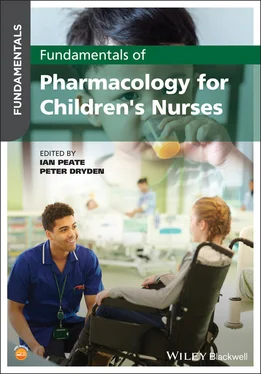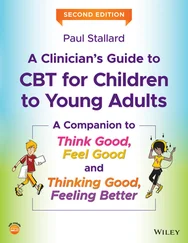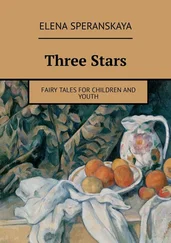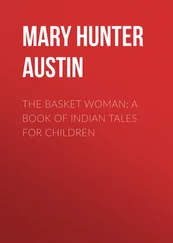Leah Rosengarten BSc (Hons) Nursing Studies (Child), MSc Practice DevelopmentLecturer Children and Young People’s Nursing, Northumbria University. After qualifying as a Children’s Nurse in 2012 from the University of Teesside, Leah began work as a staff nurse on the Children and Teenage Cancer Unit at the Great North Children’s Hospital, Newcastle. Leah worked on this unit for 6 years whilst studying for her MSc in Practice Development, part time. In 2018, Leah commenced working as a Children and Young People’s Nursing Lecturer at Northumbria University. Leah’s areas of interest include Oncology, Human Factors and Continuing Professional Development and she is currently studying for her PhD.
Alison SewellClinical Nurse Specialist (paediatrics) in the Regional Cystic Fibrosis unit at Great North Children’s hospital, Newcastle Upon Tyne. Alison completed RGN training alongside BSc (Hons) nursing, in Leeds and initially worked as in adult medicine for several years. Following completion of RSCN paediatric qualification, she worked as a staff nurse in paediatric medicine, before relocating to Newcastle. Whilst working in paediatric medicine and pursuing her interest in Cystic Fibrosis, she also gained BSc (Hons) community health care studies at Northumbria University. Alison has specialised in Cystic Fibrosis and the care of children and families following her appointment as Clinical Nurse Specialist.
Carol Sharpe Nurse Specialist (CYP) Cystic FibrosisCarol trained and qualified as a Registered General Nurse in 1986 and as a Sick Childrens Nurse in 1988. Having initially working as a staff nurse specialising in paediatric oncology she changed focus and for the last 27 years has worked as a children’s cystic fibrosis (CF) nurse specialist. She gained a BSc(Hons) degree as a paediatric nurse practitioner and is an independent nurse prescriber. Carol has contributed locally and nationally to the care of children with cystic fibrosis and has a particular interest in new born screening. She has presented work at European and American CF conferences.
Laura Stavert MPharm, PgDip Clinical Pharmacy, PGCert Independent Prescribing, MRPharmS,Advanced Pharmacist Practitioner Cumbria, Northumberland Tyne and Wear NHS Foundation Trust. Laura began her training in 2005 as a Pharmacy undergraduate at The Robert Gordon University (RGU) in Aberdeen before completing Pre‐Registration training at the Royal Infirmary of Edinburgh in 2009 and developing a range of skills across a number of clinical specialties, including a passion for mental health and medicines of the elderly. After qualification in 2010 she completed a number of basic grade rotations at the Western General Hospital in Edinburgh before taking up a specialist role in Mental Health services with Cumbria, Northumberland Tyne and Wear NHS FT in 2012. Laura began in a specialist role in mental health of older adults in 2016 before qualifying as an independent prescriber in 2017. Laura now has an advanced practice role working in the community with Older Adults with functional and organic mental health disorders. She currently teaches on the V300 Independent Prescribing course at the University of Sunderland and hopes to pursue a doctorate in the near future.
Edward StephensonLecturer University of Sunderland School of Health and Wellbeing. Experienced Education Manager with a demonstrated history of working in the higher education industry. Skilled in Lecturing, Research, Adult Education, Qualitative Research, and Curriculum Development. Strong healthcare services professional graduated from Northumbria University.
Carol Wills MSc Multidisciplinary Professional Development and Education, PGDip Advanced Practice, Bsc (Hons) Specialist Community Public Health Nursing (SCPHN) (Health Visiting), DipHE Adult Nursing, Registered Nurse (RN), Enrolled Nurse (EN), Registered Health Visitor (HV), Community Practitioner Prescriber (NP), Registered Lecturer/Practice Educator (RLP), Senior Fellow (SFHEA),Subject and Programme Leader Non Medical Prescribing at Northumbria University. Carol began her nursing career in Northumberland and enjoyed a range of exciting roles within neuro trauma, coronary care and intensive care in the North East of England before focussing on primary care and the prevention of ill health. This includes working as a staff nurse, practice nurse and nurse practitioner and then health visitor. During this time she undertook several leadership and teaching roles before her academic career. Carol is a Senior Lecturer at Northumbria University and has led a range of post‐graduate professional programmes. She has also undertaken a range of national roles as subject expert. Her key areas of interest and research are around developing learning and teaching, non medical prescribing and advanced level practice.
This text aims to provide you with an understanding of the fundamentals that are associated with pharmacology, children and young people (CYP) so as to improve patient safety and outcomes. This book can help the reader to develop their skills and confidence within the scope of pharmacology related a number of care settings, allowing them to recognise and respond in a compassionate way to the needs of CYP and their families.
The idea of studying pharmacology related to the health and well‐being of CYP may appear overwhelming – indeed, the contents list of this text may also seem overwhelming. You could be thinking: how you will ever be able remember and recall so much information and apply it all to the safe and effective care of CYP and their families? The Fundamentals of Pharmacology for Children’s Nursing and Healthcare Students has been written for you, for those nursing and other healthcare students who need to have a fundamental understanding of pharmacology as applied to care. This text has been written by clinicians and academics who are experienced in the care of CYP and their families, and they bring with them a wealth of experience that they share, helping you to come to terms with the fascinating subject of applied pharmacology.
The chapters begin by providing an overall aim along with a number of learning outcomes. At the end of the chapters, so as to promote supplementary learning, a further reading list has been provided. The Fundamentals of Pharmacology for Children’s Nursing and Healthcare Students uses a number of strategies to help you learn about pharmacology and how to apply the knowledge acquired. Episodes of care are included in most chapters – this brings, as near as possible, the clinical environment to the theory being discussed. The clinical consideration features boxes and the skills in practice features are there to encourage you to link the theory with practice. Test your knowledge questions are provided at the beginning and end of the chapters and a suite of additional learning in the form of multiple choice questions and other types of quiz are provided.
The Nursing and Midwifery Council (NMC) (2018a; 2018b and 2018c) require all of those seeking entry to the professional register to be able to demonstrate the knowledge and skills required in order to offer safe and effective care to people of all ages and across all care settings. Upon entry to the register the nurse must be able to demonstrate knowledge of pharmacology and the ability to recognise the effects of medicines, allergies, drug sensitivities, side effects, contraindications, incompatibilities, adverse reactions, prescribing errors and the impact of polypharmacy, including over the counter medication usage. There is also a requirement to understand how prescriptions can be generated and the role of generic, unlicensed and off‐label prescribing. As well as this, the nurse has to demonstrate how they relate their understanding (knowledge) of pharmacology to those people and their families whom they have the privilege to care for. Within the NMC proficiencies (NMC, 2018a; 2018b) it is noted that at the point of registration the registered nurse must apply knowledge of pharmacology to the care of people, demonstrating the ability to progress to a prescribing qualification following registration.
Читать дальше











